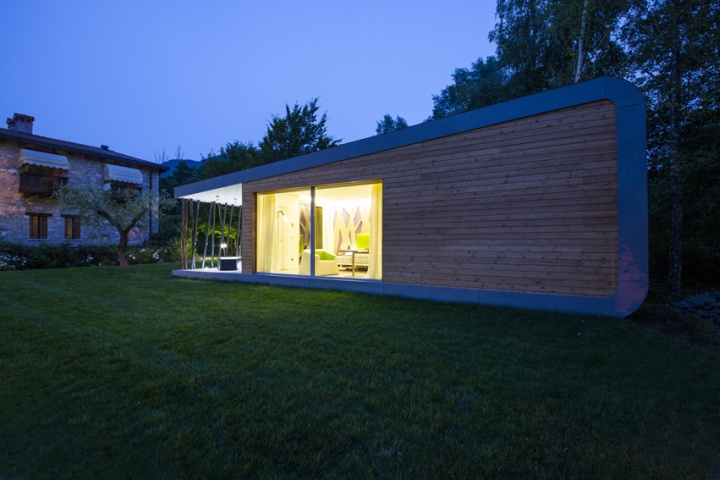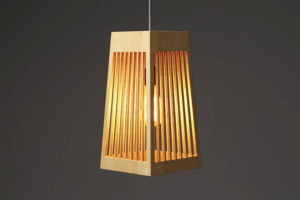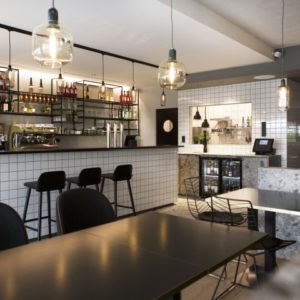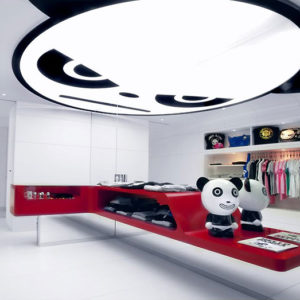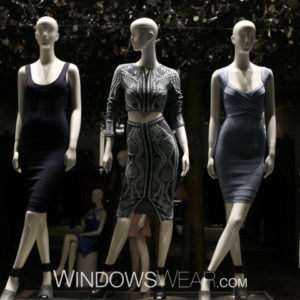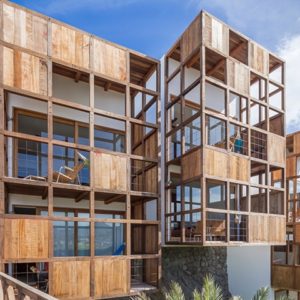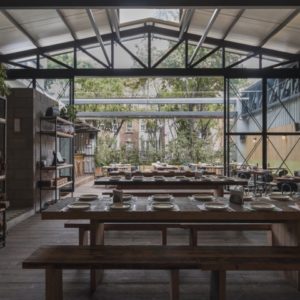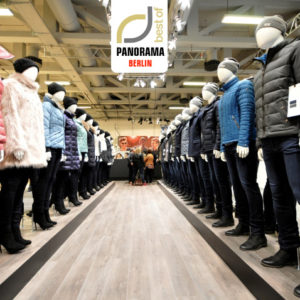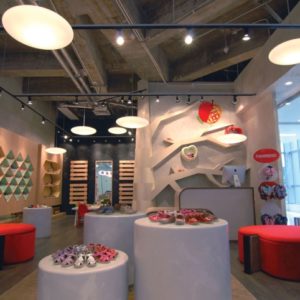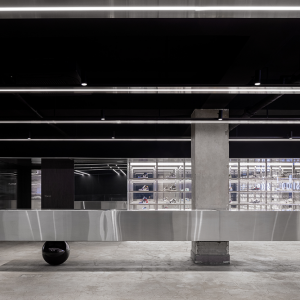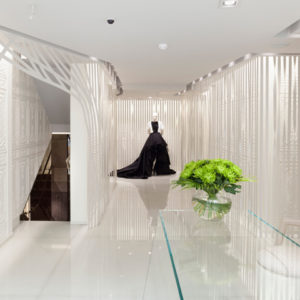
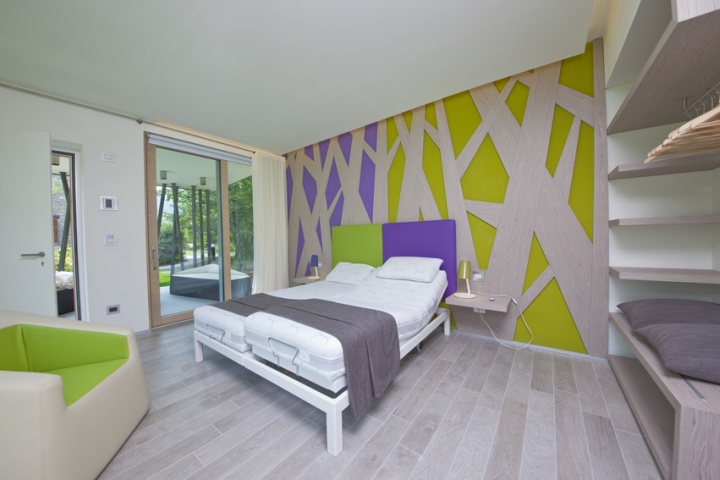

Ospitalità diffusa is the all-Italian concept which is gaining more and more attention within the ultimate frontiers of the hospitality industry: it mainly revolves around the revamping of existing buildings peppered across the countryside or located in small villages. A concept which has long been conceived differently by other countries. This new interpretation is right where the project GREEN_ZERO has its roots: a new modular housing devoted to the accommodation sector; a suite entrenched in a sustainable shell to be installed in the woods, at seaside, in the heart of the countryside, or wherever the landscape permits.
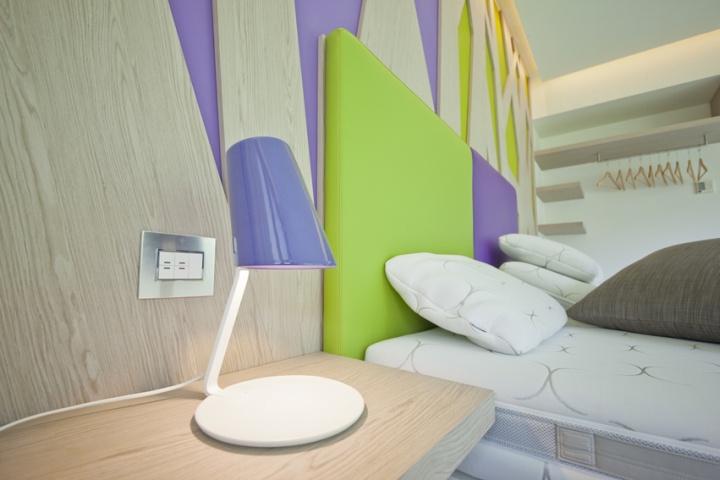
For their own nature, the GREEN_ZERO shell and its content are sinergycally committed to the concept of environment-friendly buildings, and at the same time, they also represent a unique feature of the context in which they are placed. Perfect integration arises between the hosting landscape and the inner nature of the constructions, always with a touch of elegance for they be naturally chic, just as their name NATURALMENTE CHIC suggests.
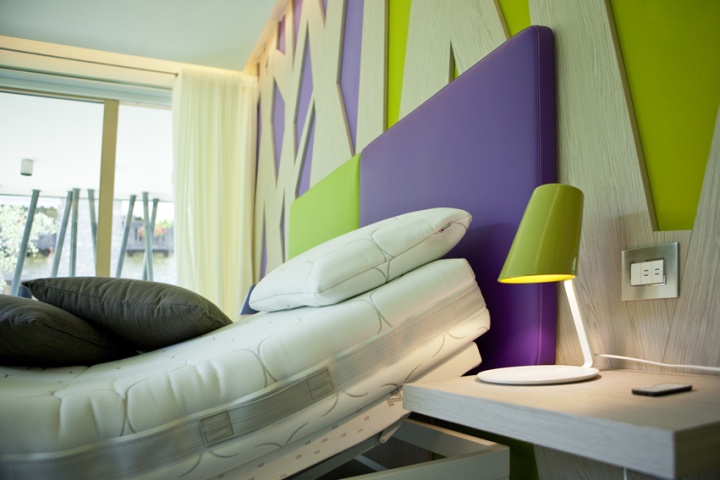
A new form of accommodation which guests can perceive as an educational game where grasping the opportunity to discover the very secret elements of green living, without giving up on the comfort and the emotional side of a holiday. An experience which makes guests appreciate how all the aspects of sustainable building maximise the exploitation of the environment energies and resources.
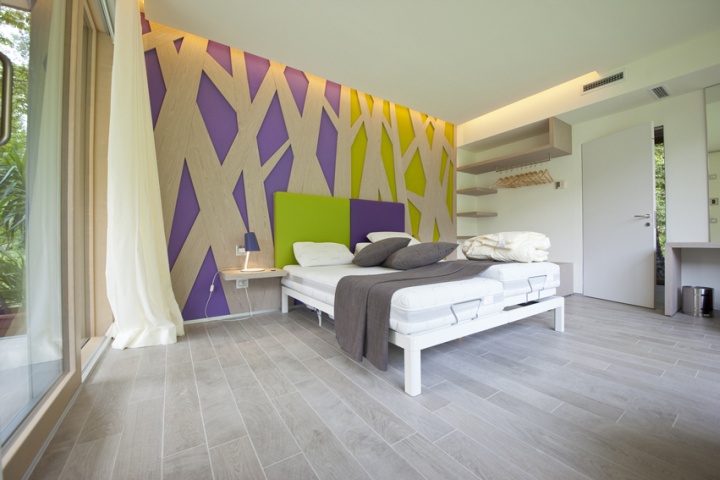
The project’s objective is giving rise to a new hotel accommodation system that is tightly interwoven with its environment and leads to the quality improvement of the global tourism offer through the combination of different modular solutions, from bungalows with bathroom to two-room apartments.
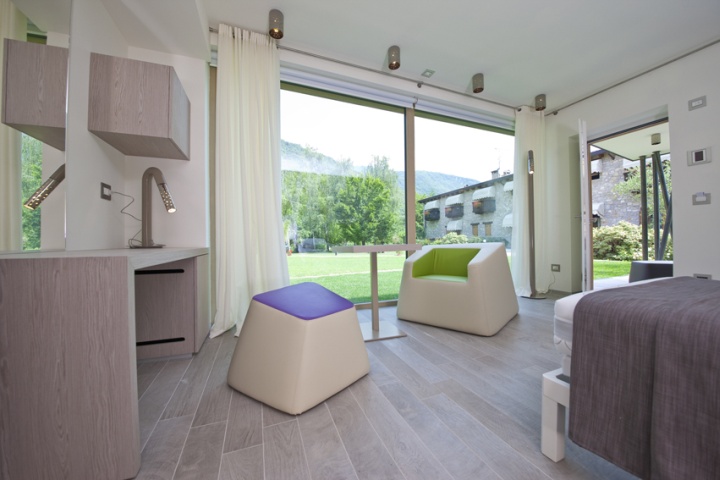
GREEN_ZERO represents the result of the co-operation of companies sharing the same green DNA, which is indeed the real value added at the basis of the development and implementation of the whole concept.
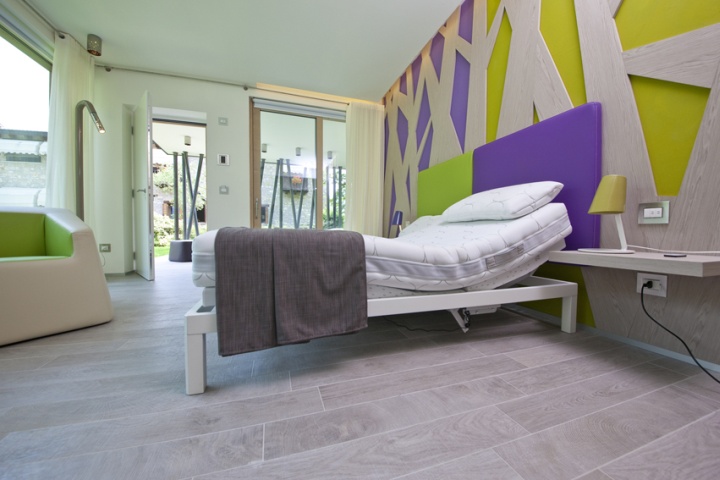
THE GREEN_ZERO SHELL
The overall design of the module represents one of its distinctive traits, further highlighted by the element marking its perimeter. The module is conceived as a flat surface bending to form a C — sewn on one side with thin metal threads — which enables the project to naturally develop inside the shell.
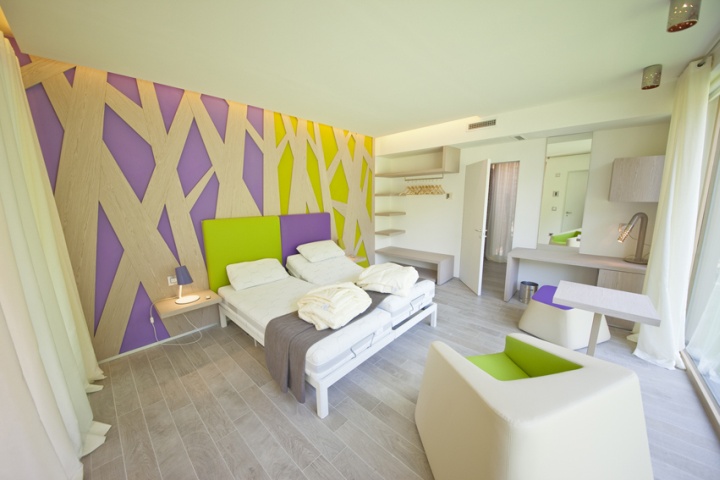
The GREEN_ZERO module is a prefabricated architectural system, in which the structural shell is made entirely from wood; it is provided with a frame and its stratigraphy, of both horizontal and vertical parts, is characterised by load-bearing and insulating elements, which allow the passage of installations, and the presence of an air chamber, created to obtain a specific assembly in accordance with climate conditions and thus being awarded the classification KlimaHaus A or KlimaHaus Gold.
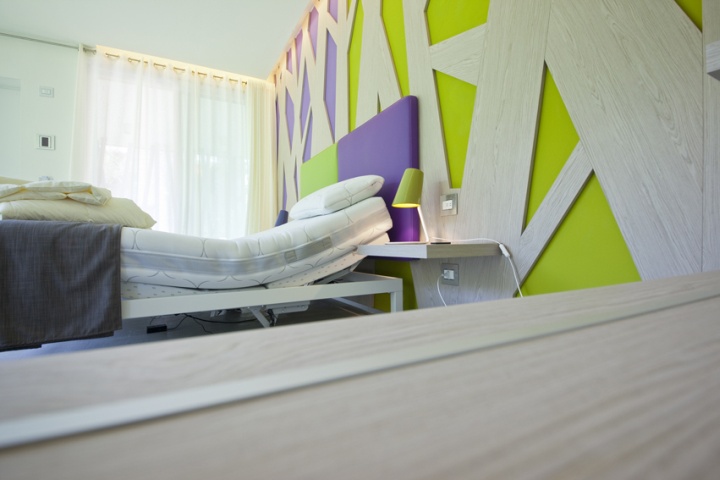
The cladding outer surface integrates a new thin photovoltaic panel system, which allows to supply the entire installation complex with the electrical power necessary to its functioning. The zinc-titanium membrane applied to this type of panel proves highly malleable and thus allows to perfectly fit the curved surfaces of the module and create all the technical elements fundamental to ventilation, management or recovery of rainwater.
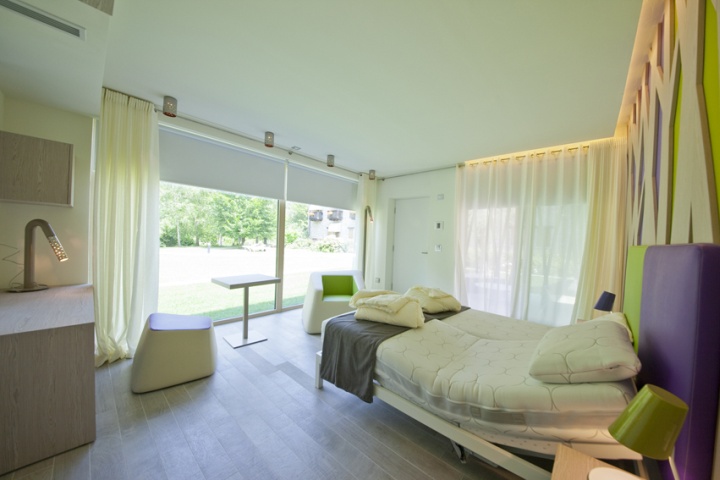
The prefabricated structure needs to be anchored to the ground on a natural stone foundation, that is a system composed of split-face stones of different grain size, compacted and retained by a metallic cage in order to achieve the ideal mechanical resistance.
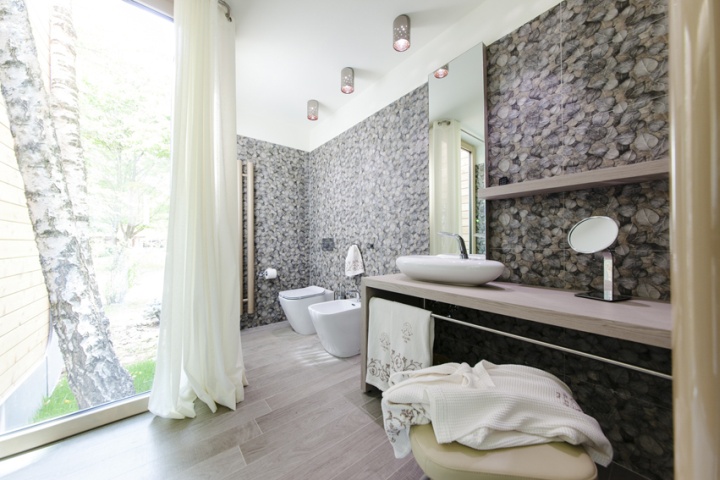
The external cladding is realised using a modular pattern of wooden boards, thus permitting to hide the fixing screws; its surface is polished with a natural wax coating, that can be regularly renewed, unless wood ageing and oxidation are preferred. The structural architecture is completed, on one side, with iron tubes symbolising a tangle of trunks: two are the pillars, two are the downspouts for channelling and recovering rainwater and the others have a mere aesthetic purpose. Floorings and internal and external claddings are made of highly resistant fully-vitrified ceramics, provided with outdoor anti-slipping surface. They are produced through sustainable processes conferring a wood and nature-like effect with patterns of extraordinary dramatic result.
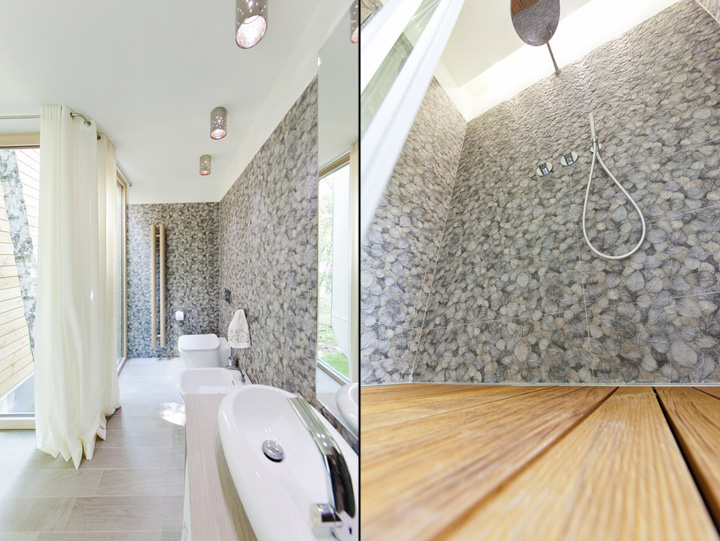
The external lighting system features a twilight sensor and gives great visibility to the outdoor area and entrance, beyond providing a bottom-up light illuminating the tree, which is integral to the architecture. The building includes different areas, i.e., outdoor, bedroom, and bathroom, and a mechanical room to accommodate all installations. The end of the module, where the curved surfaces are, is intended to accommodate tanks and equipment for rainwater recovery and management of incoming and outgoing water.
GREEN_ZERO is a dynamic and customisable system able to meet every client’s need, keeping however intact its building and functioning principles.
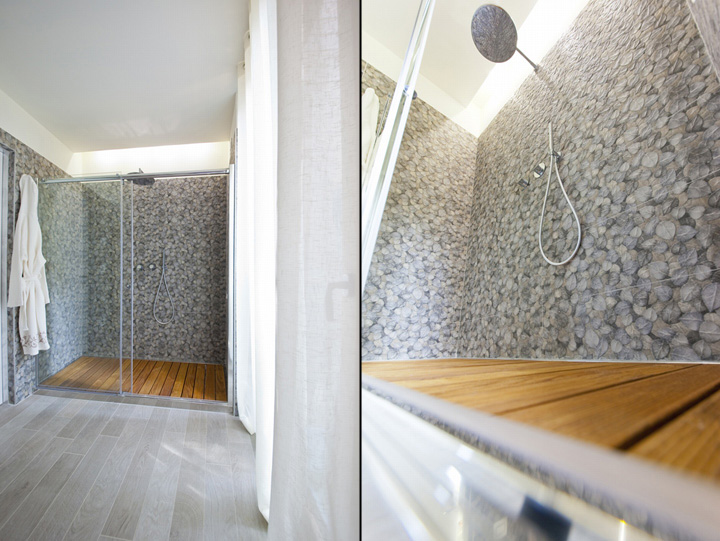
THE NATURALMENTE CHIC SUITE
Minimal and pure lines blend with a hint of colour creating the basis for the bedroom area of the Naturalmente Chic suite. The space devoted to resting is immediately visible when entering the room: on one side, the bed headboard enriched by stylised branches and trunks, and on the other, a fully-glazed partition liaising the inside with the nature outside. The wardrobe unit with desk combines extremely functional open vertical and horizontal elements. The bed unit is designed to improve physical well-being thanks to its base with an independent and movable frame, which can be adjusted at different heights and positions to meet every requirements and match individual posture.
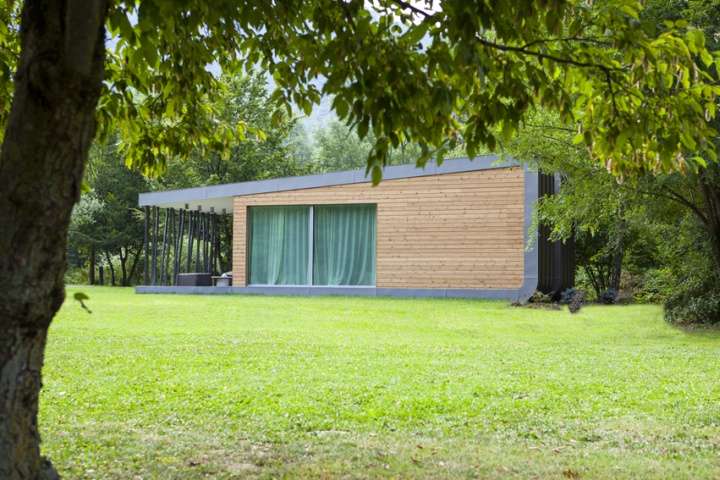
The wide window is provided with a double layer of curtains: the first is translucent and soft for smoothing out the linear forms of the inside and giving some protection from the outside; the second is a roll-down curtain able to obscure light, suitable at night or for privacy reasons.
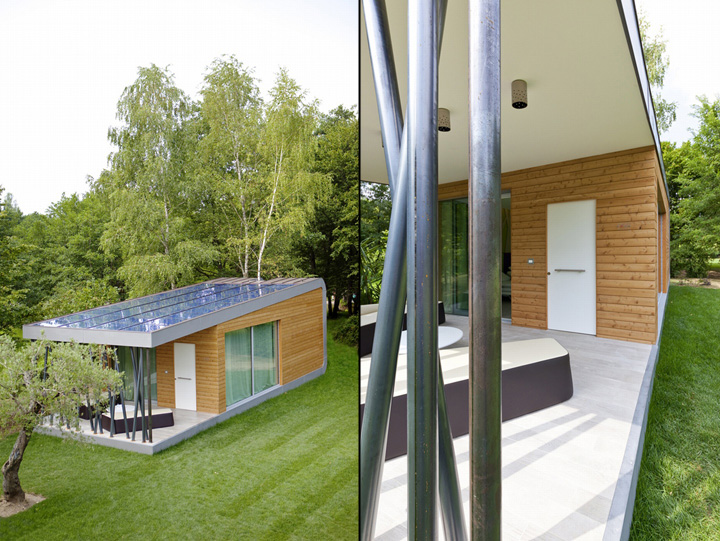
The space enhances thanks to the ambience created by various lighting sources: from wall-wash lights, highlighting the bed headboard, to the ceramic lamps on the bedside drawers, and from the ceiling lights, also made in ceramic and creating a back-illumination effect in relation to the wide window, to the table lamp on the writing desk and the floor reading lamp.
Thanks to the designer armchair and ottoman — both included in the Bon Bon collection — breakfast can be served inside the room, enjoying a view on the surrounding nature.
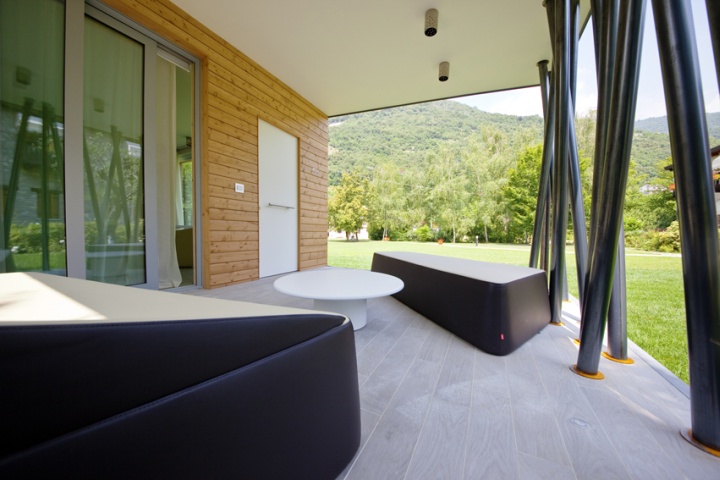
The bathroom area is distinguished by an architectural indentation that cuts the shell’s structure to embrace a pre-existing birch, thus becoming an integral and impressive part of the interiors. The cladding in fully-vitrified ceramics reproduces a carpet of fallen leaves in the woods and leads to the body wellness area: a large shower with wooden-slatted floor and rain system which offers intimate and relaxing moments, thanks to colour therapy and strobe lights, ambience perfumes and wall mirror with music technology.
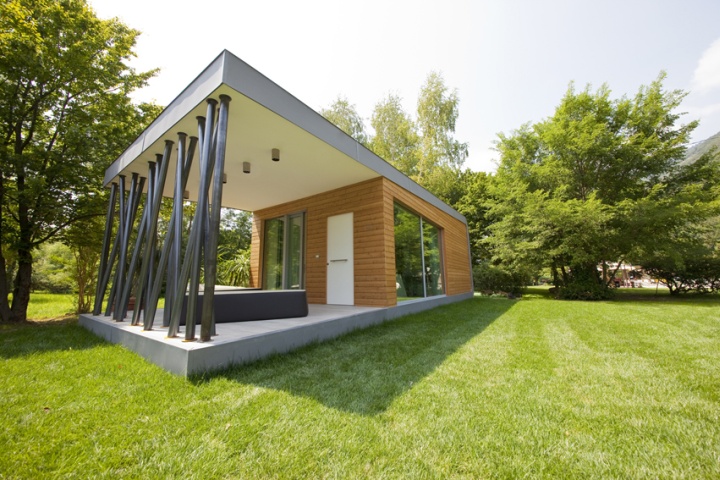
The outdoor area is designed for relaxing in harmony with the environment. It offers padded sofa-benches, where sitting or lying down, and a hi-tech table with lighting and music system for listening to music, reading or enjoying a drink, while being immersed in a natural scenario. The domotics system of the module allows, in few commands, to easily create customisable scenarios to be adapted to everyone’s needs by combining all different functions.
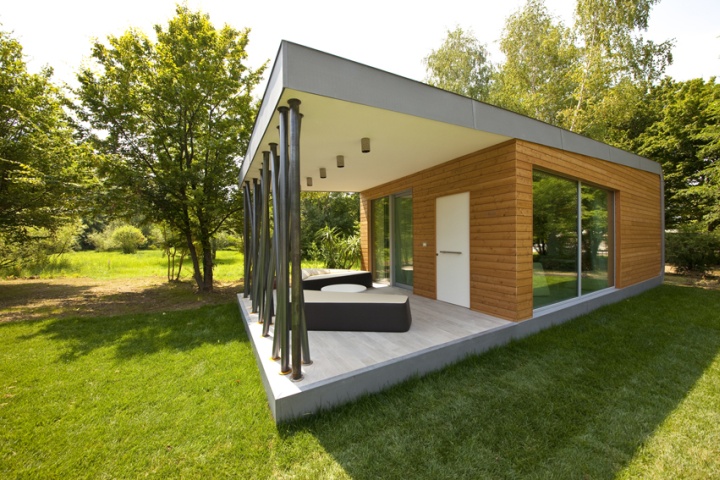
A SUSTAINABLE PROJECT
“Contrary to today’s popular belief, green design is not a matter of fashion. It is instead a choice based on solid research, which involves structure, installations and materials, as well as the planning of spaces and, last but not least, the design of the objects within them. A research which selects mass or customised items, exclusively certified:” these are the principles inspiring our integrated project team, whose goal is to develop projects moving towards a zero-impact on the environment.
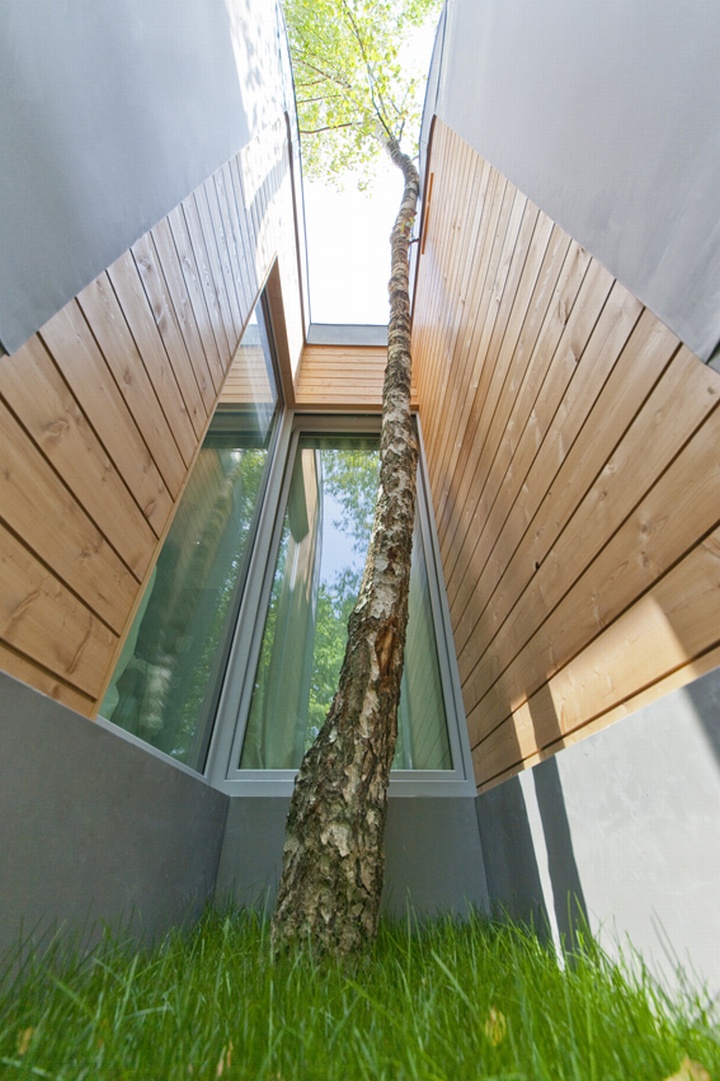
Our responsibility towards the environment is in fact the leitmotif of the whole project, which blends the modular architecture of Green-Zero with the interior design of Naturalmente Chic: a double reference to both the “invisible project” and the “visible project”, meaning the building in its entirety, including the foundation and structural system, all installations and the use of local natural resources, as well as all finishing elements, lighting, furnishing and furniture, without forgetting the selection of suppliers and installers which have to ensure the highest possible standard of sustainability.
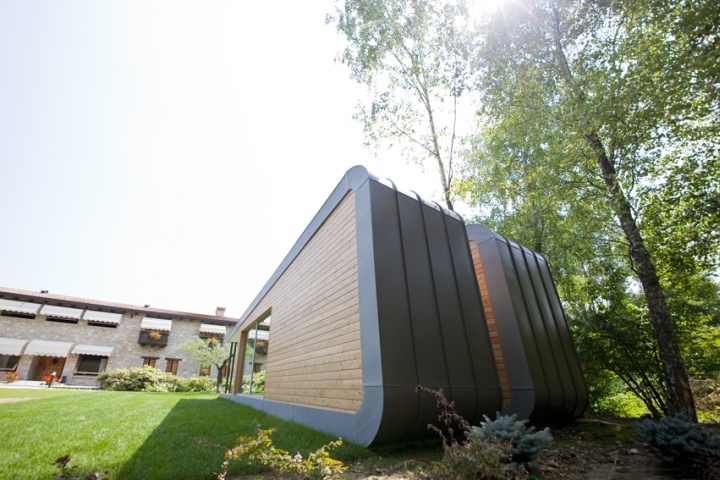
In particular, the project’s sustainability comes in the foreground in several elements, such as the photovoltaic cells covering the outside surface of the shell and the use of water pumps with a maximum capacity of five litres per minute. All the rest is hidden underneath the “skin” of the shell, finally becoming its beating heart.
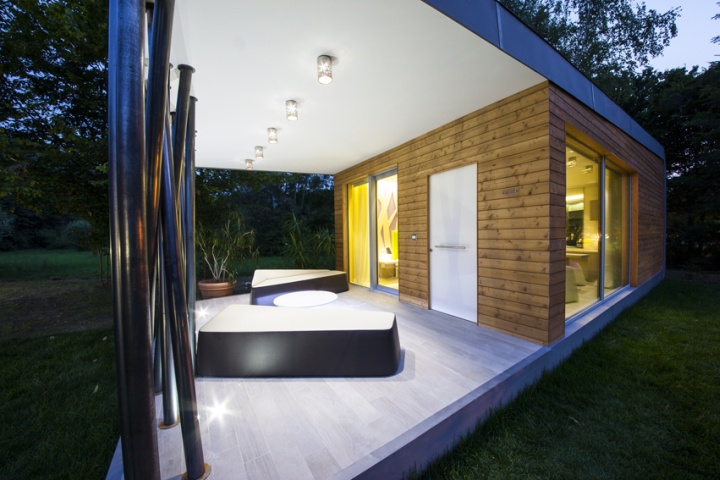
The success of this sustainable project depends on the synergy among well-educated costumers, integrated planning processes, budget maximisation, project management and companies’ selection, all oriented towards the creation of a system which strives to be entirely sustainable, also in economic terms.
Design project: architect Daniele Menichini – Piombino (Livorno – Italy)
Interior design project: architect Daniele Menichini
Technical-lighting design: architect Daniele Menichini
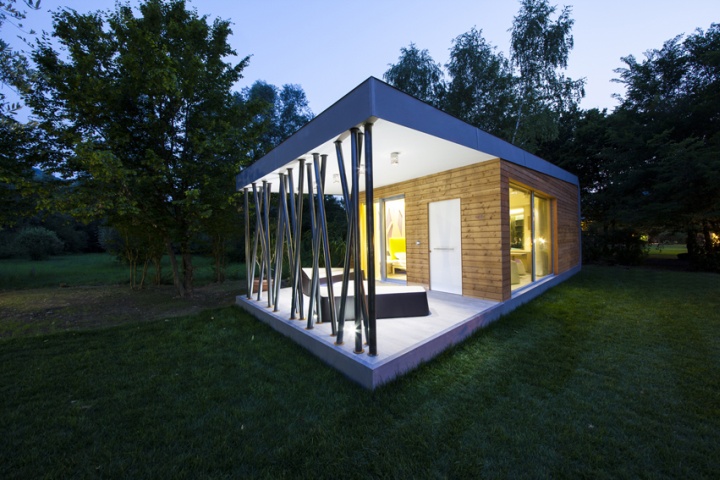
STUDIO DI ARCHITETTURA DANIELE MENICHINI
Architect and designer Daniele Menichini was born in Engelberg, Switzerland, in 1968. In 1995, he was awarded a degree in Architecture from the University of Florence. In 1996, he found the firm “Studio di Architettura Daniele Menichini”, which engages in project development, interiors, fitting, design, visual communications, and art direction for companies in the home and contract furniture industry.
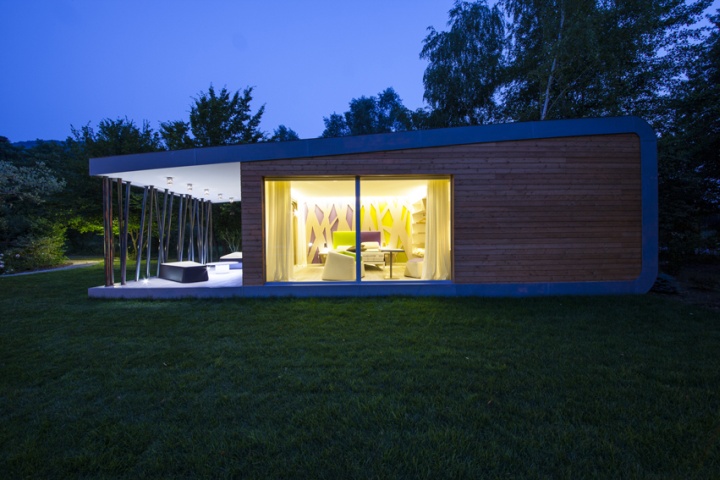
In addition to thorough theoretical research, Daniele has tackled with accurate practical studies in the architectural field of interior design, committing with all issues regarding housing, contemporary living, accommodation solutions, hospitality industry, sale showrooms, food industry, as well as entertainment and wellness sectors. Since the inception of his career, his style has stood out for the contemporary pattern of lines, the materiality and use of colour, the creation of ambience and emotions, the multiple perception of space, together with his careful attention to the development of environment-friendly concepts and care for details. His approach is rooted in a technical, creative and managerial training path based on researches and studies analysing the integrated and sustainable development of projects in Northern European countries. All this, together with his personal experiences, has led to the development of the projects Green Room and Green_zero.
